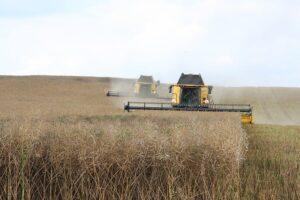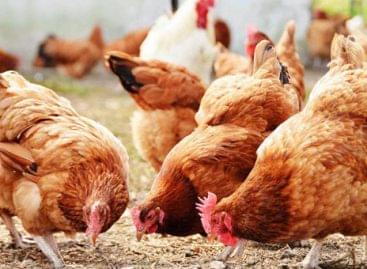Results and developments in the new era of Hungarian agriculture
The Orbán government reversed the degradation of the countryside and agriculture after joining the EU. Plant closures, bankruptcies and abandoned factories characterized the period of the left-wing government, not the current one.

(Photo: Pixabay)
After joining the EU, under the left-wing government, the performance of agriculture decreased by 20%, and that of the food industry by 16%. In contrast, after 2010, both sectors began to develop spectacularly: the performance of agriculture increased by 32.5%, and that of the food industry by 34.4%. Agricultural subsidies were used as targeted as possible within the EU framework, as a result of which the productivity of Hungarian agriculture in the European Union increased by the fifth largest rate during this period, more than twice the EU average. Through enormous efforts, we have achieved the highest share of animal husbandry in the structure of agriculture since joining the EU. In the cattle, milk and poultry sectors, growth has been sustained since the 2010s. The figures also show the strengthening of competitiveness in the area of vegetable production, since between 2010 and 2023 the yield of tomatoes is 32.1%, onions 42.4%, carrots 23.6%, and green peas 49.6% -, while sweet corn showed an increase of 68.6%.
Livestock farms being rebuilt in all parts of the country, renewable food industry plants and new irrigation investments indicate the success of the largest agricultural investment program after the regime change
Thanks to the maximum 80% national co-financing provided to EU sources, in the last three years alone we have spent HUF 400 billion on the development of livestock farms, more than HUF 100 billion on the modernization of horticultural plants, nearly HUF 230 billion on expanding food industry capacities, and HUF 180 billion on precision agriculture transition to farming. The amount of agricultural investments reached HUF 667.1 billion in 2023, which is 55.5% higher than the 2010 level. These developments not only increased productivity, but also increased competitiveness. The profitability of the sector also improved, as the real income per labor unit increased by 120.8%, which is the second best result in the EU.
The improvement of the international competitiveness of the agricultural economy is also well reflected in the foreign trade indicators
Between 2010 and 2023, agricultural exports increased by 129.1%, while the share of processed products within agricultural exports rose from 62% to 74.2%. The subsidies available within the framework of the Rural Development Program contributed significantly to technological developments, modernization and the modernization of processing plants. The performance of the food industry not only increased, but the proportion of processed products in agricultural exports also rose to 74.2%. The foreign trade surplus increased by 65%, which is also the result of technological developments, government subsidies and adaptation to market needs. The government continues to support the development of the agriculture and food industry, paying particular attention to sustainability and further strengthening of competitiveness.
AM
Related news
Protein, gut health and mental wellbeing – these trends will shape global food innovation in 2026
🎧 Hallgasd a cikket: Lejátszás Szünet Folytatás Leállítás Nyelv: Auto…
Read more >The EP accepted the safeguard clauses concerning the Mercosur agreement
🎧 Hallgasd a cikket: Lejátszás Szünet Folytatás Leállítás Nyelv: Auto…
Read more >Related news
OKSZ on the extension of the margin stop decree
🎧 Hallgasd a cikket: Lejátszás Szünet Folytatás Leállítás Nyelv: Auto…
Read more >







